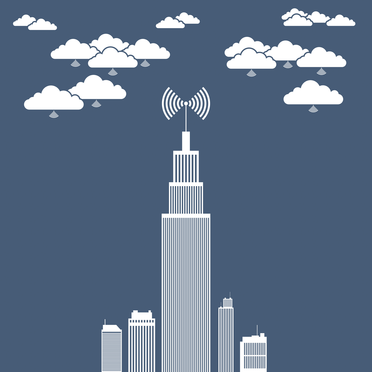Wi-Fi Security Flaw Puts Millions at Risk for Cyberattack
Researchers have discovered a huge flaw in WPA2 Wi-Fi encryption that makes any Wi-Fi enabled device like routers, smartphones and PCs susceptible to this attack.
November 09, 2017 at 01:35 PM
7 minute read
The original version of this story was published on Law.com

Researchers have discovered a huge flaw in WPA2 Wi-Fi encryption that makes any Wi-Fi enabled device like routers, smartphones and PCs susceptible to this attack. The attacks are being called “KRACK attacks,” which stands for Key Reinstallation Attacks.
Robert Knapp, CEO of CyberGhost, recently sat down with Inside Counsel to discuss the implications of the attacks and how people can encrypt their data to protect themselves.
There is a weakness in the WPA2 protocol, which is the protocol that secures all modern protected Wi-Fi networks. The weakness lies in the “handshake” that a Wi-Fi network and a device give each other when the device asks to join. The two decide on an encryption key for all future traffic, meaning that each device will only be able to read data if it has that key. This weakness allows hackers to access sensitive information that is exposed on the Wi-Fi connection such as credit card details, addresses, chats etc. An attacker within range of anybody using a Wi-Fi connection victim can exploit these to obtain an incredible amount of information on all of us.
As the weakness is in the Wi-Fi connection to the device this means that all devices that are connected to the network and connect to the internet without a VPN are exposed. But the most exposed devices are Android phones not only are they already particularly vulnerable, they are also incredibly slow to receive updates—meaning that the patch could take a while to arrive, which is especially concerning now that the exploit is public.
“The vulnerability can be used to steal any information which is used while browsing including bank accounts, credit cards, chat messages, emails, photos and so on,” Knapp explained. “It can also be used to inject and manipulate data; attackers can use this to infect websites and insert ransomware. We do not know which information has been already used and the worry now, is how this vulnerability, which is not exposed to the public, will be used in the future.”
So, how can people protect themselves from these attacks?
One way to protect yourself is not to use any sensitive information while connecting to Wi-Fi, according to Knapp, but this is difficult as vulnerability exists on almost any Wi-Fi connection. Using a top-class 256-bit AES encryption technology, such as the one provided in CyberGhost VPN protects your privacy and secures you online, even on a public, unprotected Wi-Fi. Furthermore, CyberGhost adds an additional layer like HTTPS that secures even non- HTTPS connections in a hacked Wi-Fi. Also, major hardware manufacturers are releasing patches to deal with this weakness that can be downloaded and used to protect consumers.
“This weakness is especially exposing as it applies to most Wi-Fi connections including home Wi-Fi devices, which means that any information used when browsing the internet is exposed,” he explained. “And given that we use our mobile and desktop devices for everything these days it is basically like walking around in the middle of the street shouting out loads of your credit card information, address and personal chats for everybody to hear.”
Today, this is one of the widest-spread vulnerabilities as it exists in almost any interaction we have with the internet in our daily lives. This reiterates what CyberGhost has been saying for a while, “The Internet itself is broken and until the whole system is replaced we all have to make sure we take precautions to protect ourselves when using it.”

Researchers have discovered a huge flaw in WPA2 Wi-Fi encryption that makes any Wi-Fi enabled device like routers, smartphones and PCs susceptible to this attack. The attacks are being called “KRACK attacks,” which stands for Key Reinstallation Attacks.
Robert Knapp, CEO of CyberGhost, recently sat down with Inside Counsel to discuss the implications of the attacks and how people can encrypt their data to protect themselves.
There is a weakness in the WPA2 protocol, which is the protocol that secures all modern protected Wi-Fi networks. The weakness lies in the “handshake” that a Wi-Fi network and a device give each other when the device asks to join. The two decide on an encryption key for all future traffic, meaning that each device will only be able to read data if it has that key. This weakness allows hackers to access sensitive information that is exposed on the Wi-Fi connection such as credit card details, addresses, chats etc. An attacker within range of anybody using a Wi-Fi connection victim can exploit these to obtain an incredible amount of information on all of us.
As the weakness is in the Wi-Fi connection to the device this means that all devices that are connected to the network and connect to the internet without a VPN are exposed. But the most exposed devices are Android phones not only are they already particularly vulnerable, they are also incredibly slow to receive updates—meaning that the patch could take a while to arrive, which is especially concerning now that the exploit is public.
“The vulnerability can be used to steal any information which is used while browsing including bank accounts, credit cards, chat messages, emails, photos and so on,” Knapp explained. “It can also be used to inject and manipulate data; attackers can use this to infect websites and insert ransomware. We do not know which information has been already used and the worry now, is how this vulnerability, which is not exposed to the public, will be used in the future.”
So, how can people protect themselves from these attacks?
One way to protect yourself is not to use any sensitive information while connecting to Wi-Fi, according to Knapp, but this is difficult as vulnerability exists on almost any Wi-Fi connection. Using a top-class 256-bit AES encryption technology, such as the one provided in CyberGhost VPN protects your privacy and secures you online, even on a public, unprotected Wi-Fi. Furthermore, CyberGhost adds an additional layer like HTTPS that secures even non- HTTPS connections in a hacked Wi-Fi. Also, major hardware manufacturers are releasing patches to deal with this weakness that can be downloaded and used to protect consumers.
“This weakness is especially exposing as it applies to most Wi-Fi connections including home Wi-Fi devices, which means that any information used when browsing the internet is exposed,” he explained. “And given that we use our mobile and desktop devices for everything these days it is basically like walking around in the middle of the street shouting out loads of your credit card information, address and personal chats for everybody to hear.”
Today, this is one of the widest-spread vulnerabilities as it exists in almost any interaction we have with the internet in our daily lives. This reiterates what CyberGhost has been saying for a while, “The Internet itself is broken and until the whole system is replaced we all have to make sure we take precautions to protect ourselves when using it.”
This content has been archived. It is available through our partners, LexisNexis® and Bloomberg Law.
To view this content, please continue to their sites.
Not a Lexis Subscriber?
Subscribe Now
Not a Bloomberg Law Subscriber?
Subscribe Now
NOT FOR REPRINT
© 2025 ALM Global, LLC, All Rights Reserved. Request academic re-use from www.copyright.com. All other uses, submit a request to [email protected]. For more information visit Asset & Logo Licensing.
You Might Like
View All
Exits Leave American Airlines, SiriusXM, Spotify Searching for New Legal Chiefs
2 minute read


After Botched Landing of United Airlines Boeing 767, Unlikely Plaintiff Sues Carrier
5 minute readTrending Stories
- 1Uber Files RICO Suit Against Plaintiff-Side Firms Alleging Fraudulent Injury Claims
- 2The Law Firm Disrupted: Scrutinizing the Elephant More Than the Mouse
- 3Inherent Diminished Value Damages Unavailable to 3rd-Party Claimants, Court Says
- 4Pa. Defense Firm Sued by Client Over Ex-Eagles Player's $43.5M Med Mal Win
- 5Losses Mount at Morris Manning, but Departing Ex-Chair Stays Bullish About His Old Firm's Future
Who Got The Work
J. Brugh Lower of Gibbons has entered an appearance for industrial equipment supplier Devco Corporation in a pending trademark infringement lawsuit. The suit, accusing the defendant of selling knock-off Graco products, was filed Dec. 18 in New Jersey District Court by Rivkin Radler on behalf of Graco Inc. and Graco Minnesota. The case, assigned to U.S. District Judge Zahid N. Quraishi, is 3:24-cv-11294, Graco Inc. et al v. Devco Corporation.
Who Got The Work
Rebecca Maller-Stein and Kent A. Yalowitz of Arnold & Porter Kaye Scholer have entered their appearances for Hanaco Venture Capital and its executives, Lior Prosor and David Frankel, in a pending securities lawsuit. The action, filed on Dec. 24 in New York Southern District Court by Zell, Aron & Co. on behalf of Goldeneye Advisors, accuses the defendants of negligently and fraudulently managing the plaintiff's $1 million investment. The case, assigned to U.S. District Judge Vernon S. Broderick, is 1:24-cv-09918, Goldeneye Advisors, LLC v. Hanaco Venture Capital, Ltd. et al.
Who Got The Work
Attorneys from A&O Shearman has stepped in as defense counsel for Toronto-Dominion Bank and other defendants in a pending securities class action. The suit, filed Dec. 11 in New York Southern District Court by Bleichmar Fonti & Auld, accuses the defendants of concealing the bank's 'pervasive' deficiencies in regards to its compliance with the Bank Secrecy Act and the quality of its anti-money laundering controls. The case, assigned to U.S. District Judge Arun Subramanian, is 1:24-cv-09445, Gonzalez v. The Toronto-Dominion Bank et al.
Who Got The Work
Crown Castle International, a Pennsylvania company providing shared communications infrastructure, has turned to Luke D. Wolf of Gordon Rees Scully Mansukhani to fend off a pending breach-of-contract lawsuit. The court action, filed Nov. 25 in Michigan Eastern District Court by Hooper Hathaway PC on behalf of The Town Residences LLC, accuses Crown Castle of failing to transfer approximately $30,000 in utility payments from T-Mobile in breach of a roof-top lease and assignment agreement. The case, assigned to U.S. District Judge Susan K. Declercq, is 2:24-cv-13131, The Town Residences LLC v. T-Mobile US, Inc. et al.
Who Got The Work
Wilfred P. Coronato and Daniel M. Schwartz of McCarter & English have stepped in as defense counsel to Electrolux Home Products Inc. in a pending product liability lawsuit. The court action, filed Nov. 26 in New York Eastern District Court by Poulos Lopiccolo PC and Nagel Rice LLP on behalf of David Stern, alleges that the defendant's refrigerators’ drawers and shelving repeatedly break and fall apart within months after purchase. The case, assigned to U.S. District Judge Joan M. Azrack, is 2:24-cv-08204, Stern v. Electrolux Home Products, Inc.
Featured Firms
Law Offices of Gary Martin Hays & Associates, P.C.
(470) 294-1674
Law Offices of Mark E. Salomone
(857) 444-6468
Smith & Hassler
(713) 739-1250






